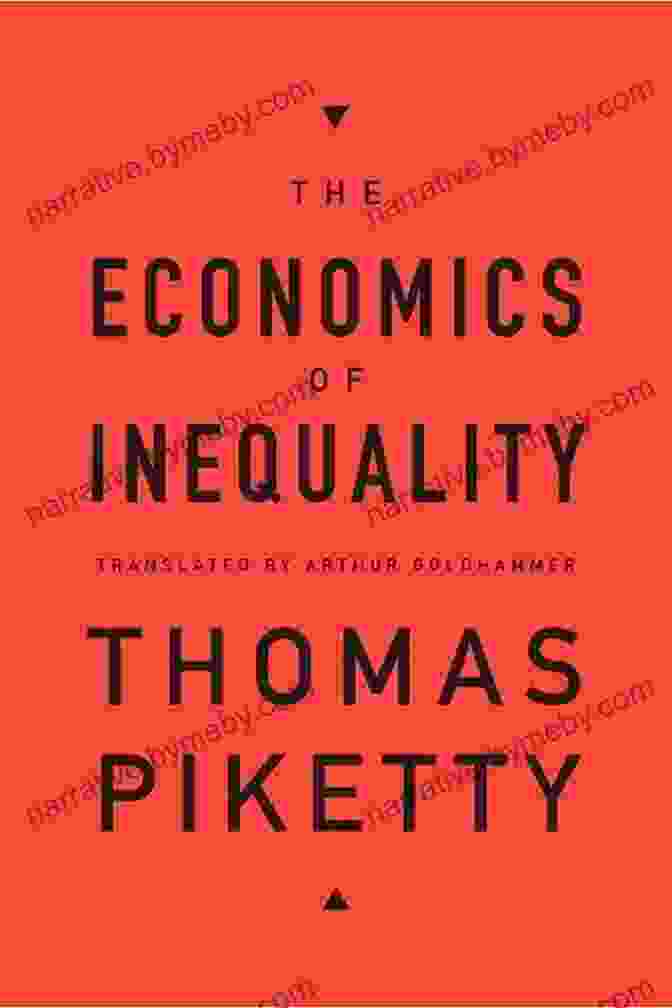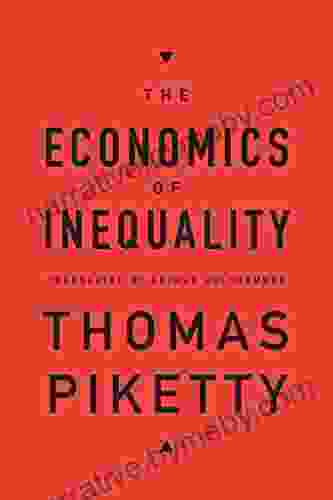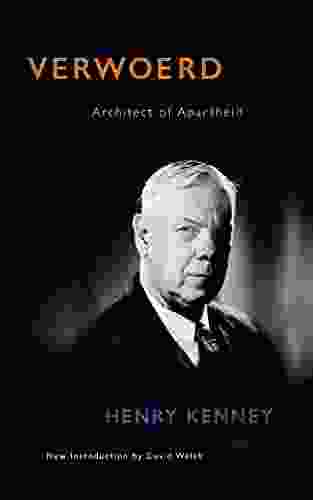Unveiling the Secrets of Inequality: A Journey through Thomas Piketty's Masterpiece


4.4 out of 5
| Language | : | English |
| File size | : | 1824 KB |
| Text-to-Speech | : | Enabled |
| Enhanced typesetting | : | Enabled |
| Word Wise | : | Enabled |
| Print length | : | 153 pages |
: A Quest for Economic Justice
In the realm of economics, few books have sparked such intense debate and ignited such widespread social discourse as Thomas Piketty's monumental work, "The Economics of Inequality." Published in 2014, this groundbreaking study has transformed our comprehension of wealth distribution and its profound implications for economic growth, social justice, and the future of capitalism itself.
Piketty's meticulous research, spanning centuries and traversing countless countries, unveils a startling truth: inequality is not merely a transient phenomenon but rather an inherent characteristic of market economies. Driven by the relentless force of "r > g," where "r" represents the return on capital and "g" signifies economic growth, wealth tends to concentrate in the hands of a privileged few, widening the chasm between the affluent and the impoverished.
Exploring the Depths of Inequality
Through an exhaustive analysis of historical data, Piketty demonstrates that this growing divide is not a recent development but a persistent trend that has plagued societies throughout history. In pre-industrial societies, inequality was primarily driven by inheritance and property ownership. However, with the advent of capitalism and the rise of the industrial economy, the accumulation of wealth through financial markets and corporate profits has further exacerbated this disparity.
Piketty's work challenges the conventional wisdom that economic growth automatically leads to a more equitable distribution of wealth. On the contrary, he argues that in a capitalist system, the forces that drive growth also tend to concentrate wealth in the hands of those who already possess it. This dynamic creates a self-reinforcing cycle, perpetuating and even widening the gap between the rich and the poor.
The Consequences of Inequality: Economic, Social, and Political
The consequences of inequality are far-reaching and deeply concerning. Piketty demonstrates that extreme wealth disparity undermines economic growth by reducing demand and stifling innovation. It also exacerbates social tensions, fostering resentment and distrust among different segments of society. Moreover, excessive inequality can erode democratic institutions and lead to political instability, as vested interests seek to protect their wealth and influence.
Piketty's analysis has had a profound impact on policymakers and social activists around the world, sparking renewed debates about the role of government in addressing inequality. He advocates for progressive taxation, wealth redistribution, and investments in education and public services as potential solutions to mitigate the harmful effects of unchecked wealth accumulation.
A Call to Action: Shaping a More Equitable Future
"The Economics of Inequality" is not merely an academic treatise but a clarion call for action. Piketty urges us to confront the pressing issue of inequality and strive for a society where wealth is more equitably distributed. He argues that this is not only a moral imperative but also an economic necessity for sustainable and inclusive growth.
Piketty's work has ignited a global dialogue about the causes and consequences of inequality, challenging long-held assumptions and inspiring new approaches to economic policy. It is a must-read for anyone who seeks to understand the complexities of wealth distribution and its profound implications for our collective future.
: A Transformative Masterpiece
Thomas Piketty's "The Economics of Inequality" is a groundbreaking work that has reshaped our understanding of wealth distribution and its profound implications for society. Through meticulous research and incisive analysis, Piketty reveals the inherent tendency of capitalism to concentrate wealth, leading to a widening gap between the rich and the poor.
Piketty's work has ignited a global debate about the role of government in addressing inequality and sparked renewed discussions about the need for progressive taxation, wealth redistribution, and investments in education and public services. It is a clarion call for action, urging us to confront this pressing issue and strive for a society where wealth is more equitably distributed.
"The Economics of Inequality" is a seminal work of immense intellectual and social significance. It is a must-read for economists, policymakers, social activists, and anyone who seeks to understand the challenges and opportunities of the 21st-century economy.
4.4 out of 5
| Language | : | English |
| File size | : | 1824 KB |
| Text-to-Speech | : | Enabled |
| Enhanced typesetting | : | Enabled |
| Word Wise | : | Enabled |
| Print length | : | 153 pages |
Do you want to contribute by writing guest posts on this blog?
Please contact us and send us a resume of previous articles that you have written.
 Book
Book Novel
Novel Page
Page Chapter
Chapter Text
Text Story
Story Genre
Genre Reader
Reader Library
Library Paperback
Paperback E-book
E-book Magazine
Magazine Newspaper
Newspaper Paragraph
Paragraph Sentence
Sentence Bookmark
Bookmark Shelf
Shelf Glossary
Glossary Bibliography
Bibliography Foreword
Foreword Preface
Preface Synopsis
Synopsis Annotation
Annotation Footnote
Footnote Manuscript
Manuscript Scroll
Scroll Codex
Codex Tome
Tome Bestseller
Bestseller Classics
Classics Library card
Library card Narrative
Narrative Biography
Biography Autobiography
Autobiography Memoir
Memoir Reference
Reference Encyclopedia
Encyclopedia Barbara Scott
Barbara Scott Henry Koster
Henry Koster Barbara Mcclintock
Barbara Mcclintock Dennis Hopeless
Dennis Hopeless Ayser Salman
Ayser Salman Kate Gildon
Kate Gildon Audrey Vernick
Audrey Vernick Kandra Churchwell
Kandra Churchwell Ashley Fiolek
Ashley Fiolek David J Dennis Jr
David J Dennis Jr Sigal Adler
Sigal Adler Jeremy Keeshin
Jeremy Keeshin Babu The Panda
Babu The Panda Baruch Fischhoff
Baruch Fischhoff John Bosco
John Bosco John C Stickler
John C Stickler Helen Thompson
Helen Thompson Barb Han
Barb Han Scott Chantler
Scott Chantler Jodi Thomas
Jodi Thomas
Light bulbAdvertise smarter! Our strategic ad space ensures maximum exposure. Reserve your spot today!

 George BellUnlock the Secrets of Persuasion: The Psychology of Advertising by Wolfgang...
George BellUnlock the Secrets of Persuasion: The Psychology of Advertising by Wolfgang...
 Brandon CoxUnleash Your Child's Creativity: The Ultimate Guide to Woodcarving Kid Crafts...
Brandon CoxUnleash Your Child's Creativity: The Ultimate Guide to Woodcarving Kid Crafts... Junot DíazFollow ·16.8k
Junot DíazFollow ·16.8k Braeden HayesFollow ·2.6k
Braeden HayesFollow ·2.6k Griffin MitchellFollow ·3.6k
Griffin MitchellFollow ·3.6k Holden BellFollow ·9.9k
Holden BellFollow ·9.9k Haruki MurakamiFollow ·12.7k
Haruki MurakamiFollow ·12.7k Charles DickensFollow ·3.5k
Charles DickensFollow ·3.5k Ignacio HayesFollow ·10.5k
Ignacio HayesFollow ·10.5k Gus HayesFollow ·3.2k
Gus HayesFollow ·3.2k

 Ian McEwan
Ian McEwanWhy Didn't Anyone Say Anything? Uncovering the Hidden...
By [Author's...

 William Wordsworth
William WordsworthArthurian Legendarians: Faithless One - Part One – A...
In the realm of legendary tales, the...

 Corey Hayes
Corey HayesSSAT ISEE Prep Test: Arithmetic Review Flash Cards Cram...
Are you preparing for the SSAT or ISEE exam?...

 Robert Louis Stevenson
Robert Louis StevensonUnveiling the Essential Guide to Compliance: BCBS 239...
In the ever-evolving...

 Javier Bell
Javier BellJust Peachy: A Tale of Sweetness and Sassiness
Immerse yourself in a...

 Brent Foster
Brent FosterStep-by-Step Instruction Manual to Building a Real Estate...
Are you eager to embark on the...
4.4 out of 5
| Language | : | English |
| File size | : | 1824 KB |
| Text-to-Speech | : | Enabled |
| Enhanced typesetting | : | Enabled |
| Word Wise | : | Enabled |
| Print length | : | 153 pages |








